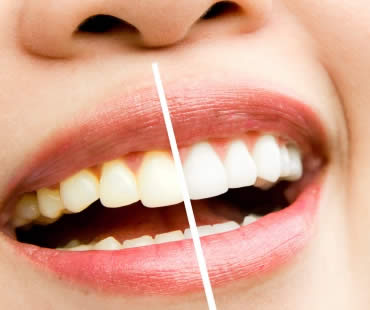
Jul 3, 2025 | Blog, Dental Topics 3, Implant Dentistry
Dental implants are an option for people who have lost a tooth or teeth due to decay or damage. With implants, an artificial tooth root is placed into your jawbone to provide support for crowns and dentures. When considering implant treatment, you may have some of the following questions and concerns:
- Who is a candidate for dental implants? Implants can be placed in almost anyone after adolescence or when bone growth has completed.
- Is implant surgery painful? No, implant treatment is usually performed under local anesthesia in your dentist’s office.
- How long does it take to place dental implants? Depending on the number of implants placed, the procedure can usually be completed in less than an hour.
- What kind of recovery can I expect after a dental implant procedure? Healing from implant surgery is usually quick and uneventful. Any pain or discomfort should be minimal and easily controlled with anti-inflammatory medication. Most patients can return to normal activity the next day.
- How long will it take before I receive my new teeth? Because the implants need time to fuse to the bone, the entire process can take up to six months. Typically, you will receive some form of temporary teeth during this period. Treatment time varies depending on your treatment needs.
- Is caring for my implants difficult? Caring for your dental implants is the same as caring for your natural teeth. Implants simply require consistent brushing and flossing and regular dental visits for routine cleanings.
- How long will my implants last? When cared for properly, dental implants should last for decades.
- Are dental implants safe? When used in qualified candidates, dental implants are an exceptionally low-risk restoration option.
In general, dental implants have a success rate of up to 98%. With proper care, implants can last a lifetime.
Ready to transform your smile? Schedule your appointment today at our Bingham Farms dental office.

Jun 26, 2025 | Blog, Cosmetic Dentistry, Dental Topics 3
Tetracycline is an antibiotic used to treat infection. While it works to fight certain illnesses, it can have a negative impact on your smile. If tetracycline is taken by pregnant women or by children while their teeth are still forming, the teeth will develop with dark stains. Usually, this medication produces brown or grayish discolorations that may cover all or part of the teeth.
People with tetracycline stains may feel self-conscious about their smiles. Your dentist can evaluate your case and discuss options for creating a gorgeous, new image. Treatments such as teeth whitening or porcelain veneers can remove stains and restore your smile.
In the past, teeth whitening was not a very effective therapy for tetracycline stains on teeth. Because the stains are intrinsic, which means they occur within the tooth, whitening didn’t always produce results. However, repeated chair side laser whitening sessions and deep bleaching products have worked in cases where the staining was not particularly dark.
The most common treatment with tetracycline stains is porcelain veneers. Made from thin shells of dental porcelain, veneers cover your teeth and produce a bright, white smile. Porcelain veneers are durable, stain-resistant, and designed to create naturally looking restorations.
With veneers, your doctor will first take impressions of your teeth to be sent to the dental lab that will handcraft your custom restorations. The dentist will then prepare the teeth for placement. Often, the dentist will place temporary veneers, which will give you a chance to preview your new look. Once the lab sends your permanent veneers to the office, you will need to return for minor adjustments and final placement.
Take the first step towards a confident smile. Contact our Bingham Farms dental office to schedule your consultation!

Jun 19, 2025 | Blog, Dental Topics 3, Family Dentistry
One thing that can make an entire family smile is good oral health. When everyone has healthy teeth and gums, there is more reason to show off those great smiles. Oral health issues can even run in families, so taking care of a problem in one person may help other family members as well by alerting them to the condition. Family dentists can benefit everyone in your household. This type of dentist treats all family members, no matter what their age is. Young children, teens, adults, and seniors are all treated in one dental practice. Family dentistry focuses on taking care of the oral health needs for everyone in the family, and offers a variety of benefits by doing so.
Establishing a healthcare relationship with a family dentist means that everyone goes to the same office for appointments. The dentist and staff get to know each person, and can provide a level of comfort knowing that everyone is receiving the same standard of care. Family dentists understand your needs and those of other family members too.
Family dentists are trained and experienced in providing care for all kinds of issues. This always includes routine dental care like cleanings, fluoride treatments, sealants, and fillings. Some family dentists also perform procedures like implants, veneers, bonding, contouring, root canal treatments, and even orthodontics. You should choose a family dentist who offers services that meet the needs of every family member.
Another thing that family dentists are skilled in is teaching patients the best ways to care for their own oral health. Children may need to be taught how to properly brush and floss, teenagers might need reminders about consistent care or maintenance with braces, and adults often require special attention for good gum health. Seniors face unique challenges related to maintaining their oral health in order to keep their natural teeth. Family dentists understand the needs of patients at each stage of life, and can provide optimum treatment for those specific challenges.
Your smile is one of your most valuable assets and your oral health should not be compromised. Finding a good family dentist is your first step in the right direction.
Do not let another day go by without taking care of your dental needs. Request an appointment now at our Bingham Farms dental office!

Jun 12, 2025 | Blog, Cosmetic Dentistry, Dental Topics 3
Not everyone has the advantage of a perfect smile. A smile makeover can help you transform your look into what you’d like it to be, and it doesn’t have to take a long time. You can walk away from just one appointment with a better smile. Here are some of the fast treatments using non-invasive techniques that are available.
Whitening teeth
If you’re considering making over your smile, one of the quickest and simplest places to start is teeth whitening. In as little as one hour in a professional setting, you can transform your look by brightening your smile more effectively than trying it at home. Whitening products sold for home use are not as strong as professional methods, so it takes a longer period of consistent use to brighten your teeth only a shade or two. Professional whitening uses stronger concentrations of bleaching agents and a special light to hasten the process, and achieves dramatic results.
Removing white spots
Unsightly white spots that you might see on your teeth are signs of demineralization under your tooth enamel. A smile makeover can include using resin infiltration, which is a non-invasive procedure that can effectively treat white spots. You can say goodbye to the spots in as little as thirty minutes of treatment time. Teeth whitening is not advised, as it can make white spots even more noticeable.
Reshaping teeth
Minor flaws like chipped, cracked, or misshapen teeth can be corrected with contouring. Small areas of your teeth can be shaved or tooth-colored resin can be applied to alter the length or shape of teeth. Tooth contouring can take as little as a half hour, and is great for those with healthy teeth that just need slight alterations for appearance purposes.
Repairing chips or gaps
Dental bonding is a simple procedure that hides gaps, chips, stains, or spacing problems. Tooth-colored resin is sculpted onto the tooth to provide a more appealing smile in only about an hour.
Ready to transform your smile? Schedule your appointment today at our Bingham Farms dental office.

Jun 5, 2025 | Blog, Dental Information, Dental Topics 3
The basic definition of oral health is the wellbeing of your teeth, gums, mouth, and supporting tissues. As well, the idea of oral health also has to do with having no pain or problems that interfere with your mouth or its functions. Without a toothache or bleeding gums, you may give your oral health little thought. Often, people take their oral health for granted, but it can actually impact your whole body.
Common Oral Health Problems:
Tooth Decay
Generally thought of a kid’s concern, cavities can strike at any age. Once you have tooth decay, it puts you at greater risk of developing more cavities in the future. Brushing at least twice a day, flossing often, and seeing your dentist on a regular basis will help reduce your risk for tooth decay and keep your oral health in top shape.
Gum Disease
Also referred to as periodontal disease, gum disease affects three out of four American adults. Because the early symptoms, swollen or bleeding gums, are mild, gum disease can go undetected. Without treatment, it can lead to gum recession, bone degeneration, and tooth loss. Studies have also linked periodontal disease to overall health issues such as heart disease and osteoporosis.
Lost Teeth
Approximately 69 percent of adults in the U.S. are missing at least one tooth. When you lose teeth, the remaining teeth are in jeopardy of coming out if you don’t close the gap in your smile. Not only do missing teeth make you self-conscious about your appearance, but they can also cause oral health problems such as alignment issues and bone loss.
Oral Cancer
With a higher mortality rate than cervical, liver, or ovarian cancer, oral cancer strikes more than 30,000 Americans each year. If caught in the early stages, the survival rate increases significantly. During your routine exams, your dentist will look for signs of suspicious tissue or other indications of trouble.
Do you live in Bingham Farms or the surrounding area? Our team is ready to help you achieve your smile goals. Schedule your appointment today.

May 8, 2025 | Blog, Dental Topics 3, Implant Dentistry
Dental implants are an option for people who have lost a tooth or teeth due to decay or damage. With implants, an artificial tooth root is placed into your jawbone to provide support for crowns and dentures. When considering implant treatment, you may have some of the following questions and concerns:
- Who is a candidate for dental implants? Implants can be placed in almost anyone after adolescence or when bone growth has completed.
- Is implant surgery painful? No, implant treatment is usually performed under local anesthesia in your dentist’s office.
- How long does it take to place dental implants? Depending on the number of implants placed, the procedure can usually be completed in less than an hour.
- What kind of recovery can I expect after a dental implant procedure? Healing from implant surgery is usually quick and uneventful. Any pain or discomfort should be minimal and easily controlled with anti-inflammatory medication. Most patients can return to normal activity the next day.
- How long will it take before I receive my new teeth? Because the implants need time to fuse to the bone, the entire process can take up to six months. Typically, you will receive some form of temporary teeth during this period. Treatment time varies depending on your treatment needs.
- Is caring for my implants difficult? Caring for your dental implants is the same as caring for your natural teeth. Implants simply require consistent brushing and flossing and regular dental visits for routine cleanings.
- How long will my implants last? When cared for properly, dental implants should last for decades.
- Are dental implants safe? When used in qualified candidates, dental implants are an exceptionally low-risk restoration option.
In general, dental implants have a success rate of up to 98%. With proper care, implants can last a lifetime.
Ready to transform your smile? Schedule your appointment today at our Bingham Farms dental office.





